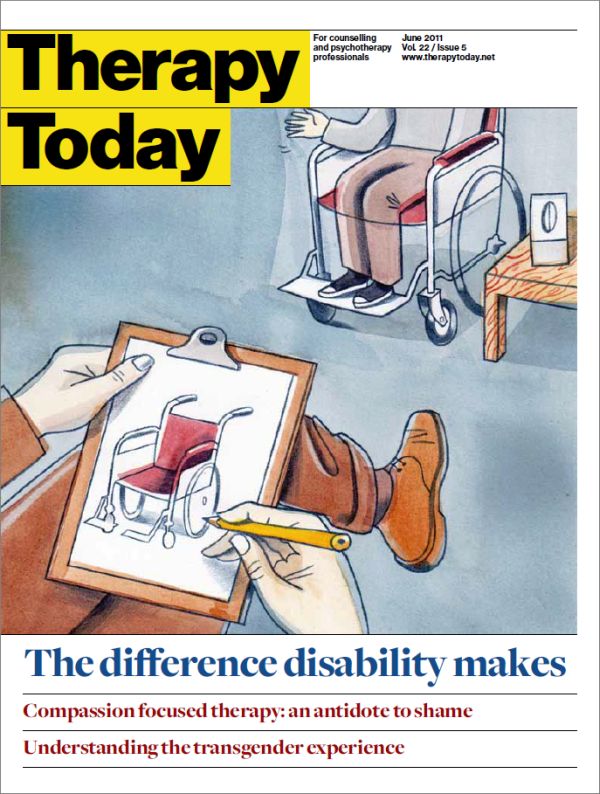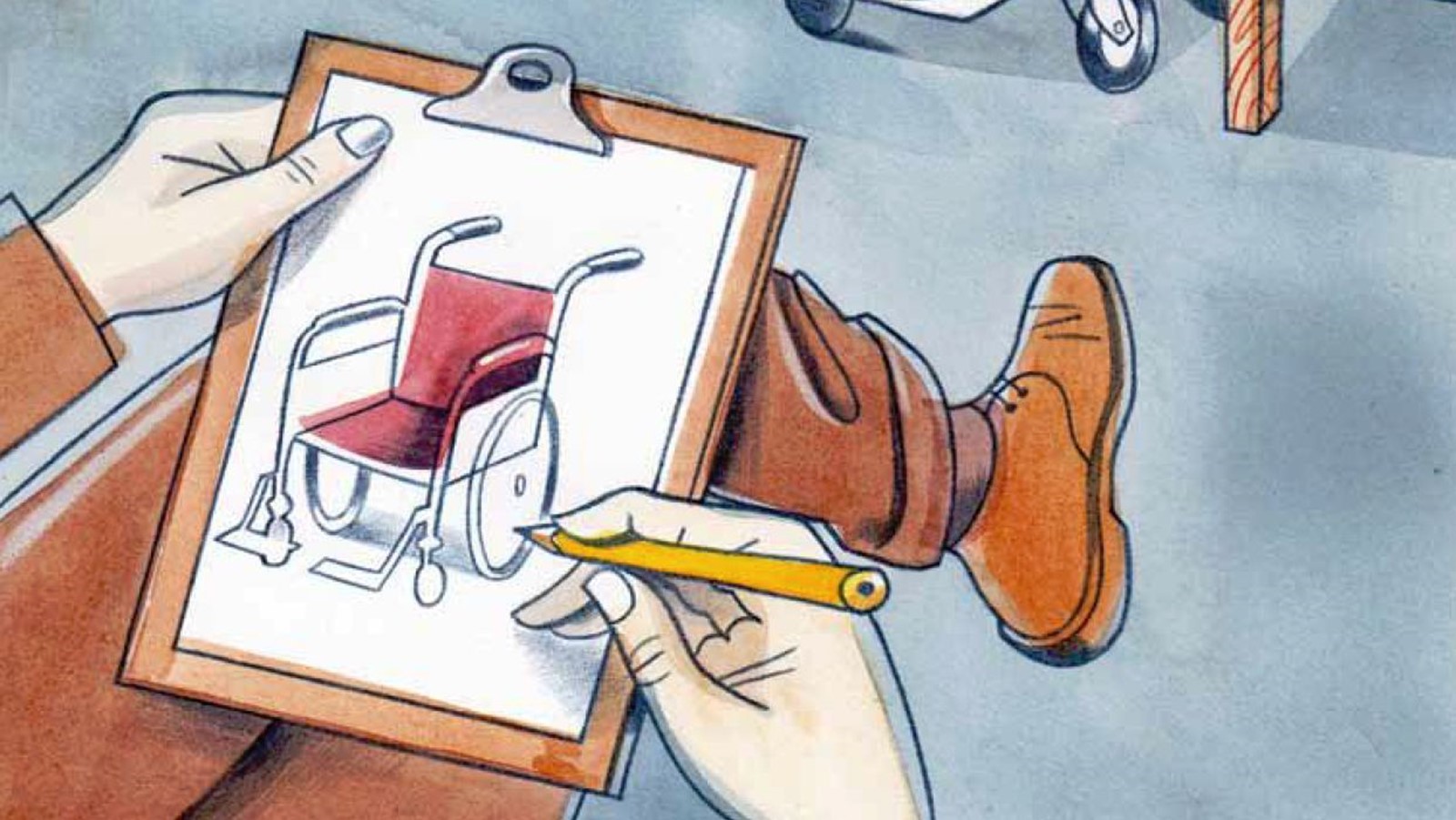In this issue
Features
There by the grace of...
Our responses to disability in training and in supervision have been difficult to challenge because of a lack of disabled role models in our profession, argues Andri White.
Promoting wellbeing through compassion
Compassion focused therapy (CFT) offers an integration of a number of familiar ideas and is gaining popularity in the territories of CBT-type approaches. By Julia Bueno.
The transgender experience: multiple possibilities
Transgender clients are appearing more and more in our consulting rooms so it is important that practitioners have an understanding about gender identity and sexuality, says David Hawley.
Regulars
In practice
Kevin Chandler: Fear and longing between the sheets
In the client’s chair
Orla Murray: Failing at therapy
In training
Alex Erskine: View from outside the bubble
From the chair
Dr Lynne Gabriel: BACP is ‘consultee’ of choice
Questionnaire
Gladeana McMahon
Fiction
The Wednesday Group
Dilemmas
Working with suicide risk
Day in the life
Shahnawaz Haque

Not all articles from this issue are available online. Members and subscribers can download the pdf from the Therapy Today archive.
Editorial
I am grateful to Andri White for her article about disability; it’s a personal and thought-provoking piece that challenges us to look at our true feelings about clients’ and supervisees’ disabilities, visible or otherwise, and how we respond to them. From her own experience, she suggests that people’s discomfort and unease in the presence of disability is so universal that she has looked into whether this comes from a hardwired human response that is out of our awareness.
She asks us to consider whether in therapy or supervision, we are really in a relationship with the disabled individual or with our construct of their impairment and discusses how the loss of I-Thou connectedness for the disabled client or supervisee is emotionally disabling. Over the 40 years during which she has progressed from client to psychotherapist and supervisor, she has had to deal constantly with ‘exclusions, impingements, assumptions and interpretations that threaten to erode [her] sense of self and invite [her] to create a false self in order to enter the inner sanctum of our profession’.
The danger in this profession, Andri argues, is that we think we have got disability covered because of our training and philosophy of non-judgmental acceptance but this is very far from the case. Disabled trainees are still having to struggle with basic issues like wheelchair access at course venues; and supervision arrangements and placements are much more difficult and expensive to arrange for disabled and deaf trainees and therapists, never mind the much more subtle barriers to inclusion and understanding.
It is not for the trainee or supervisee to have to educate their counsellor or supervisor about disability when they are paying them for a service, any more than it is for black clients to educate their counsellor about race or gay clients to educate us about gay issues.
Sarah Browne
Editor
